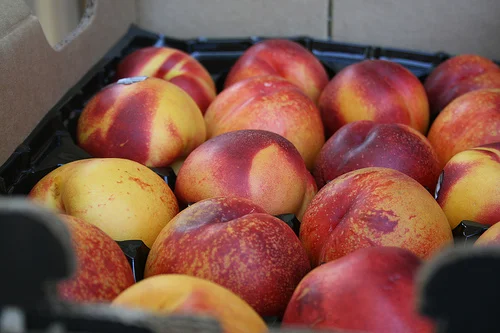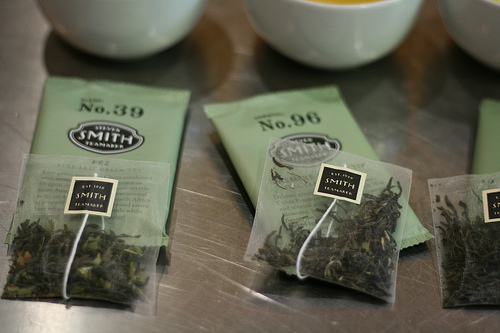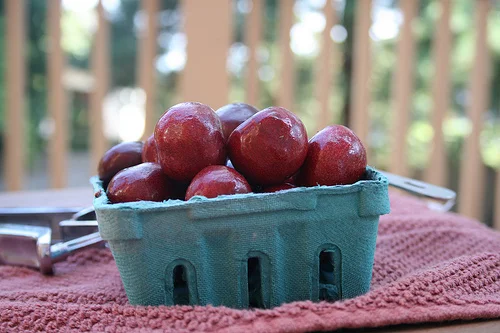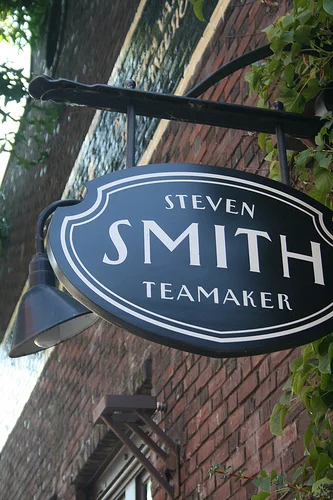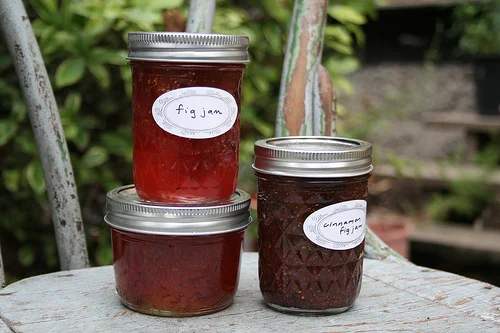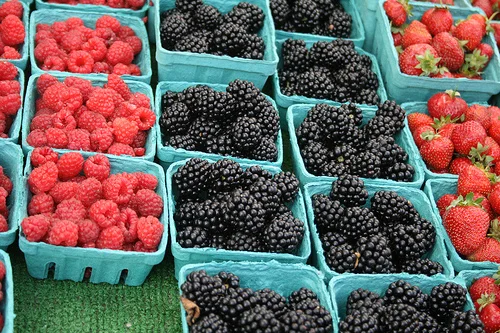preserving: green tea nectarine jam.
Oh yes I did. This yummy little jam is the culmination of two different, recent classes: 1. a preserving class at The Pantry in Seattle, (there is always more to learn! Plus: recon work since I plan to teach canning/preserving next summer). And 2. a class/overview on tea-making from Steve Smith Teamaker in Portland, OR. Tea + Jam. Makes sense now, right?
I loved the forging-new-territory approach taken by Steve Smith; they look at teas not as a means for tea-making, but as a springboard into the culinary pool. Think: teas infused into smoked duck, artisan cocktails, honey and jam. Actually, I don't know if they mentioned jam: but that was where my brain took me.
AND a huge shout-out to Washington State Fruit Commission; they sent me a box full of drippingly good nectarines. So really: Washington (nectarines!) + Seattle + Portland = really good nectarine green tea jam. I adore being part of the CANbassador program for Washington State's Sweet Preservation. They sent me two boxes of fruit and hope I spread the word about canning. Which... let's be honest: I planned to do anyway;).
Rachel from Blue Chair Fruit uses the oven method as opposed to hot-water baths and using her ratios for easy-to-make-fruit-jam I concocted this Green Tea Nectarine Jam:
Green Tea Nectarine Jam 4-5 1/2 pint jars.
4 1/2 LBS nectarines (skinned, pitted, rough chop/smooshed) 1 LB 13 oz. sugar 2 bags Green Tea (I used Steve Smith Teamaker REZ No. 39) 1/4 cup lemon juice (and up to 1/3 cup, depending on taste)
Put fruit and sugar in large, wide saucepan and let macerate at least 30 min. Cook: push for a high simmer, boiling... but not constantly sticking to the bottom of the pan. Stir occasionally, checking bottom and watching bubbles. I let it cook about 3- - 40 minutes. At the very end the whole 'jam' looks like a single unit, bubbling like a growling beast. I sometimes do a quick spoon test to make sure it is finished (and sometimes not: if my jam turns out a little loose I really don't mind: I use it with cheese and on top of vanilla rice pudding. If you want spread-worthy jam, do indeed use the spoon test---see below). Remove from stove top and stir in lemon juice. Taste. You should just be able to detect the lemon juice; if not, add 1-2 T more. Place both tea bags in jam and let sit 4-5 minutes; remove bags.
Clean jars, place jars (no lids) on cookie sheet in oven at 250 (for 30 min prior to filling; I pop in oven while my jam cooks). Remove jars from oven, fill to 1/3 inch from top and wipe rims with sanitary, wet cloth. Apply lids, twisting close but not overly tight. Place tray back in oven and cook for 15 minutes. Remove, place jars on towel and let sit 24 hours, undisturbed.
Spoon test: throw 3-4 spoons in freezer. To test for jam-doneness, place 1-2 tsp of jam into frozen spoon (no: don't dip cold spoon into hot jam; the goal is to cool off the jam-in-the-spoon rapidly, to room temp). It should take a minute or two for the jam to cool to room temp; touch bottom of cold spoon. Is it still warm? Or has it cooled off? Once cool, hold spoon with handle upright and spoon pointing toward ground. Examine the jam: is a singular glob or does it loosen/separate/spread apart? You want it to be a singular ooze. It will begin to slide off the spoon, but shouldn't be watery or separate. Make sense?

